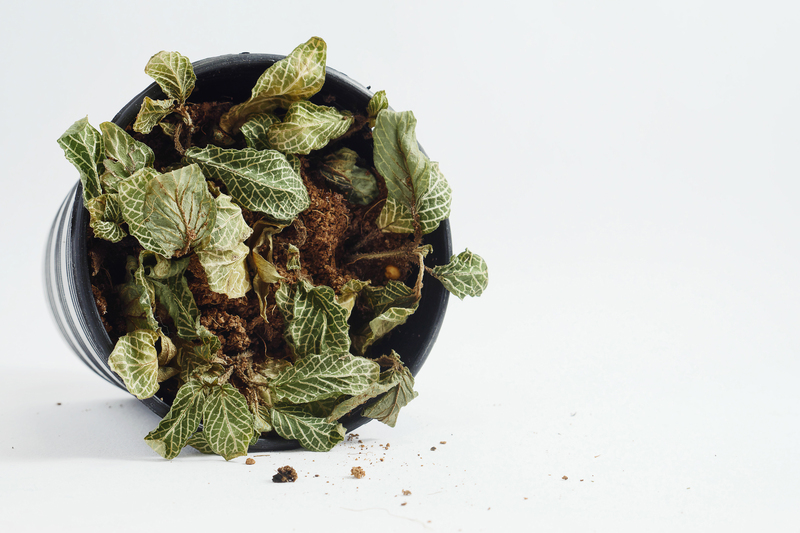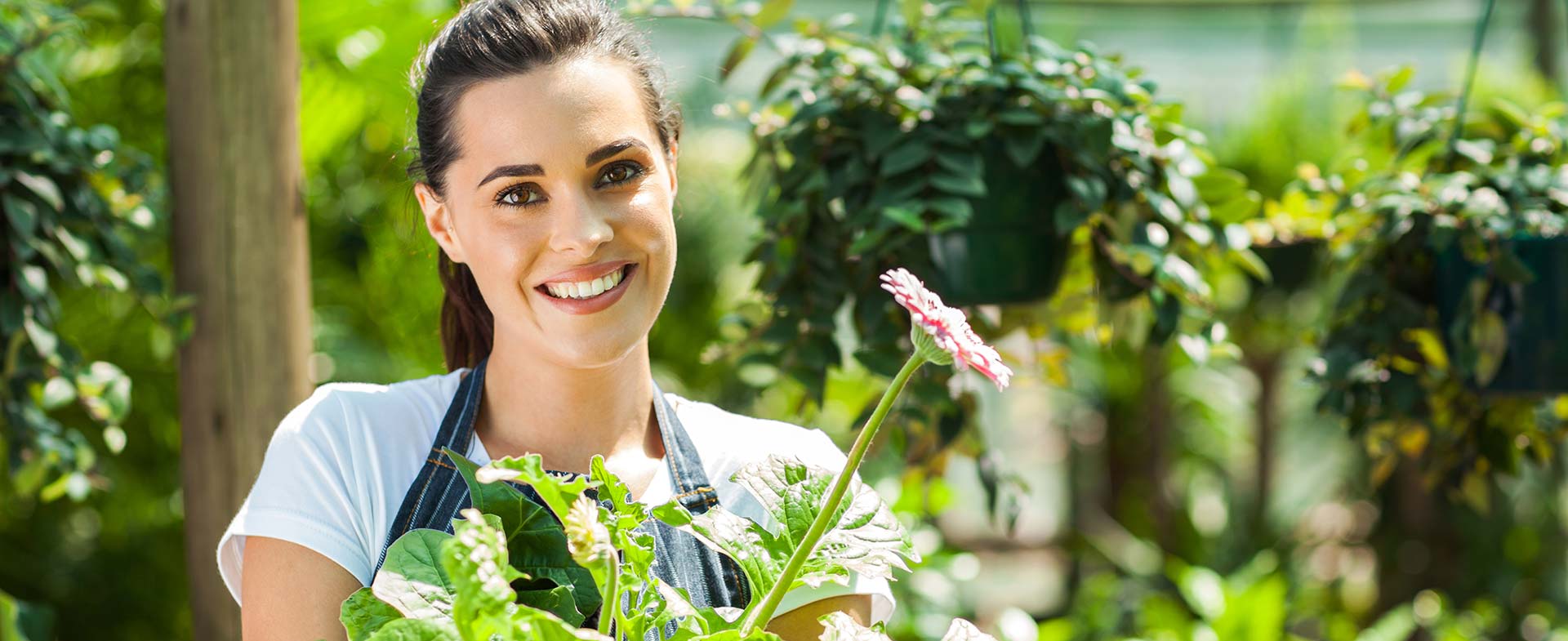Converting Organic Waste into Soil Wealth
Posted on 13/09/2025
Converting Organic Waste into Soil Wealth: Sustainable Solutions for a Greener Planet
Organic waste is often seen as a problem, but in reality, it holds enormous potential to enrich the planet. Converting organic waste into soil wealth not only reduces the burden on landfills but also revitalizes soil fertility, improves agricultural productivity, and returns vital nutrients to the earth. This comprehensive guide explores effective methods and actionable steps for transforming everyday organic materials into valuable soil resources.

The Importance of Organic Waste Transformation
Every year, billions of tons of organic and food waste end up in landfills, emitting greenhouse gases like methane and carbon dioxide as they decompose anaerobically. Repurposing organic waste into rich soil amendments is one of the most impactful ways individuals, communities, and industries can contribute to environmental sustainability.
- Reduces landfill burden: Organic materials make up a significant portion of global waste.
- Mitigates climate change: Diverting organic matter cuts methane emissions.
- Boosts soil fertility: Compost and organic amendments supply essential nutrients.
- Encourages biodiversity: Healthy soils support diverse ecosystems.
Why Should We Focus on Organic Waste in Soil Health?
Soil is the foundation of life. From supporting crops to maintaining ecosystems, its well-being is crucial. Unfortunately, years of intensive agriculture, chemical usage, and urbanization have depleted soil health. By converting kitchen scraps, yard trimmings, and other organic residues into compost and similar products, we can regenerate soils, sequester carbon, and support sustainable food systems.
What is Organic Waste?
Organic waste refers to biodegradable materials derived from plants, animals, and other natural sources. Common examples include:
- Fruit and vegetable peels
- Coffee grounds and tea bags
- Grass clippings and leaves
- Wood chips and sawdust
- Paper towels and napkins (unbleached and uncoated)
- Eggshells
- Chicken manure and livestock bedding
These wastes are rich in nutrients, carbon, and microbes essential for healthy soils. Yet, if not managed correctly, they can become environmental hazards--contributing to pollution and resource loss.
Methods for Converting Organic Waste into Valuable Soil Resources
There are several effective approaches to turning organic matter into soil wealth. Below are the most popular, efficient, and sustainable methods available to households, farmers, and community organizations.
1. Composting: The Cornerstone of Organic Waste Conversion
Composting is the natural process of decomposing organic waste to create nutrient-rich humus. Compost acts as an excellent soil amendment, improving texture, fertility, and water retention.
Key Benefits:- Reduces household waste by up to 30%.
- Enriches garden and agricultural soils without chemicals.
- Supports beneficial soil microbes.
How to Start Composting at Home
-
Choose a Composting Method:
- Pile or heap
- Compost bin
- Vermicomposting (worms)
-
Layer Greens and Browns:
- Greens: Vegetable scraps, coffee grounds, grass clippings (nitrogen-rich)
- Browns: Dry leaves, cardboard, straw (carbon-rich)
- Maintain Moisture and Aeration: Compost needs to be damps but not soggy. Turn the pile weekly for proper oxygenation.
- Monitor and Harvest: Finished compost is dark, crumbly, and earthy-smelling--ready in 2 to 6 months depending on conditions.
2. Vermicomposting: Harnessing Worm Power
Vermicomposting uses red worms (e.g., Eisenia fetida) to break down organic matter faster and produce vermicast or worm castings. This process is highly efficient and ideal for small households or urban spaces.
- Odorless and space-saving
- Yields nutrient-dense organic fertilizer
- Builds beneficial microbe populations
Simply place kitchen scraps in a ventilated bin, add bedding (shredded paper or coconut coir), and let the worms do the work. In a few months, you will harvest worm castings--a superior soil amendment.
3. Bokashi Fermentation: Fast and Effective Waste Transformation
Bokashi is an anaerobic fermentation process that utilizes effective microorganisms (EM) to pickle organic material. Unlike traditional composting, Bokashi can process cooked food, meat, and dairy items. The result is "pre-compost," which can be buried in soil to complete decomposition.
- Suitable for all food scraps
- Seals in a bucket, limiting odors
- Rapid breakdown (within weeks)
4. Industrial Composting and Anaerobic Digestion
For businesses, municipalities, and large-scale farmers, industrial compost facilities and anaerobic digesters provide advanced solutions to handle tons of organic residues.
- Produces huge quantities of mulch, compost, and liquid fertilizers
- Captures biogas for energy production
- Reduces landfill dependency and logistics costs
Key Components for Successful Organic Waste Conversion
Balanced Inputs: Carbon (Browns) and Nitrogen (Greens)
A successful compost or decomposition process relies on a balance between carbon-rich "browns" and nitrogen-rich "greens".
- Browns = Leaves, straw, wood chips, paper
- Greens = Food scraps, fresh grass, coffee grounds, manure
Too much green leads to odor and sogginess; too much brown results in slow decomposition.
Oxygen and Moisture
Microbes and worms need moisture and air to break down organics efficiently. Regularly aerate composts and keep them as moist as a wrung sponge.
Temperature and Time
Compost piles should heat up (between 50-70?C or 120-160?F) for proper microbial activity and pathogen destruction. A hot pile decomposes faster and yields a safer, richer end product.
The Benefits of Transforming Organic Residue into Soil Wealth
1. Enhanced Soil Structure and Fertility
Organic amendments improve water holding, aeration, and root development. This means healthier plants, reduced erosion, and better resilience against droughts and floods.
2. Reduced Chemical Dependency
By enriching soil naturally, farmers and gardeners cut down on synthetic fertilizers and pesticides. This lowers costs, minimizes pollution, and promotes human health.
3. Waste Minimization and Carbon Sequestration
Returning organics to the soil sequesters atmospheric carbon, helping slow climate change. Above all, it diverts waste from landfills, tackling a major environmental issue at the source.
4. Circular Economy and Community Engagement
Building local compost programs and encouraging organic waste recycling fosters a circular, resilient community. Neighbors, schools, and businesses collaborate to turn waste into shared wealth.
Success Stories: Organic Waste as a Soil Resource Around the World
Urban Composting Collectives
Cities like San Francisco, Toronto, and Milan have introduced curbside organic waste collection and composting services. As a result, landfill contributions have plummeted, while thriving urban farms and gardens are flourishing thanks to nutrient-rich soil products.
Agricultural Innovations
Organic coffee farms in South America return coffee pulp and husks back to their fields via on-site composting. This not only enhances yields but also protects waterways from runoff pollution.
School and Community Gardens
Educational composting projects teach children and residents about ecology while producing free, high-quality soil amendments for healthy community gardens.
Challenges and How to Overcome Them
1. Contamination
Non-organic materials like plastics, metals, and chemicals can ruin compost batches and soil health. Best practices include careful sorting at the source and targeted education about what can and cannot be composted.
2. Lack of Awareness and Infrastructure
Not all communities have access to organic recycling programs or know the benefits of composting. Municipal investment and public campaigns are crucial for building widespread participation.
3. Pests and Odors
Poorly managed compost can attract rodents, flies, and generate bad smells. This is easily prevented by following guidelines on layering, aeration, and covering fresh food scraps with browns.
Practical Tips for Turning Household Organic Waste into Soil Wealth
- Designate a countertop food scrap container for easy, frequent collection of kitchen waste.
- Chop or shred large scraps to speed up decomposition.
- Avoid composting meat, dairy, or oily items in backyard piles--use Bokashi or city collection for those.
- Compost year-round, adjusting moisture and insulation as needed for weather changes.
- Share finished compost with neighbors or local gardens if you produce more than you need.
Soil Regeneration: The Future of Sustainable Agriculture and Food Security
As global populations swell and environmental pressures mount, regenerating soils with recycled organics is the key to resilient, productive agriculture. Not only does it ensure nutritious food for all, but it also builds carbon-rich topsoil, recharges aquifers, and supports pollinators and wildlife.
The Science Behind Organic Matter and Soil Health
Compost and organic amendments supply humus--an essential component of healthy soil. Humus binds minerals, stores moisture, buffers pH, and houses millions of beneficial organisms that support plant growth naturally.

Taking Action: Steps You Can Start Today
- Reduce food waste by buying what you need, storing food properly, and using leftovers creatively.
- Start a home compost or worm bin--even small apartments can use balcony bokashi buckets!
- Join or initiate local composting initiatives for schools, neighborhoods, or businesses.
- Advocate for municipal organic recycling programs to boost community participation and impact.
Conclusion: Embracing the Transformation from Organic Waste to Soil Wealth
Converting organic waste into valuable soil amendments is more than a waste solution--it is an investment in a greener, healthier, and more resilient future. Whether in your backyard, community, or at scale, embracing these practices transforms problems into profound opportunities for environmental renewal and prosperity.
Start today by treating your organic waste not as garbage, but as a vital resource for soil regeneration. The planet--and your plants--will thank you.
Latest Posts
Enrich Shaded Areas with the Charm of Evergreen Climbers
Neglected Garden? Start Your Makeover with These Tips
Transform Your Garden with These Must-Have Tools

